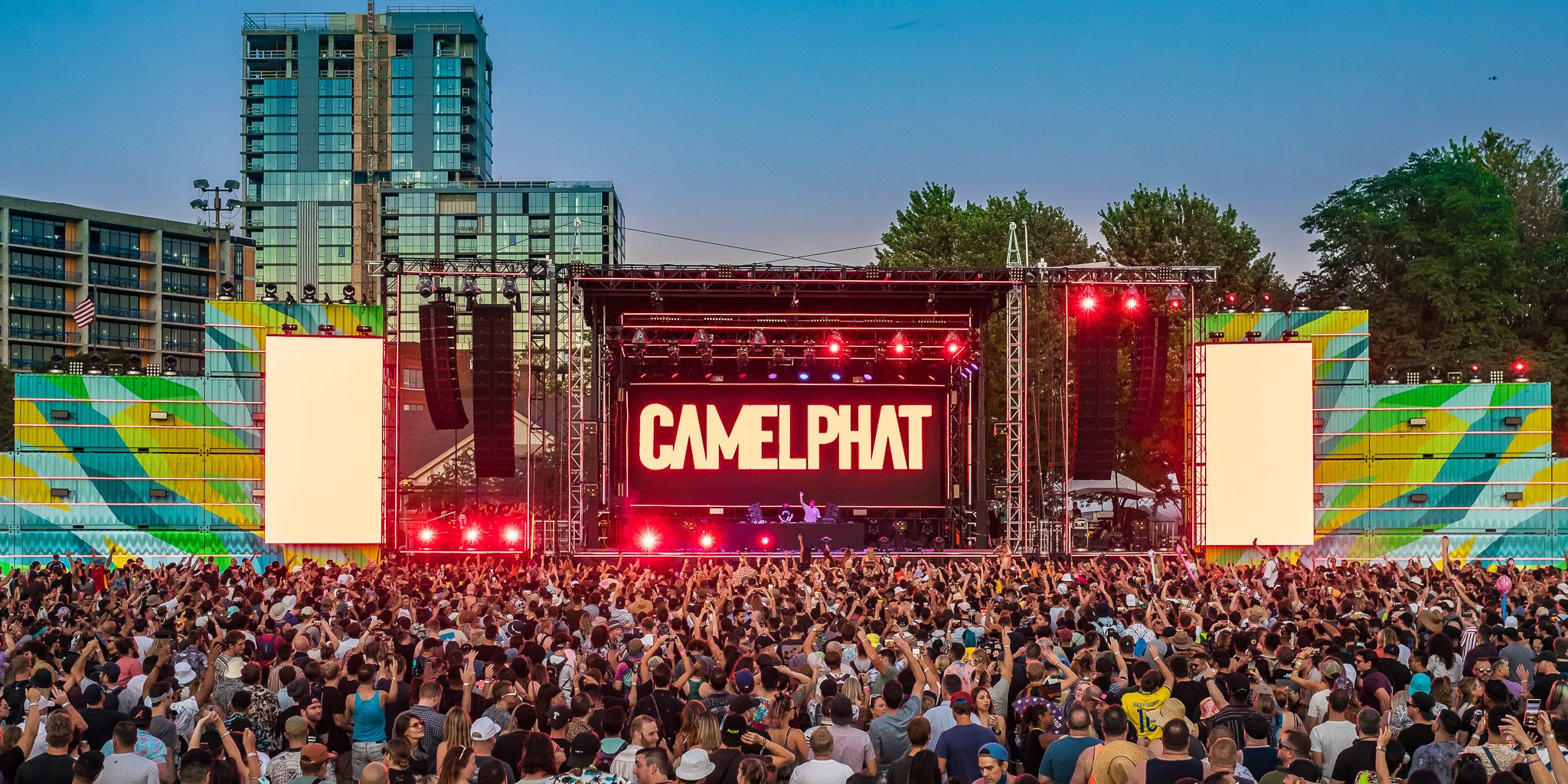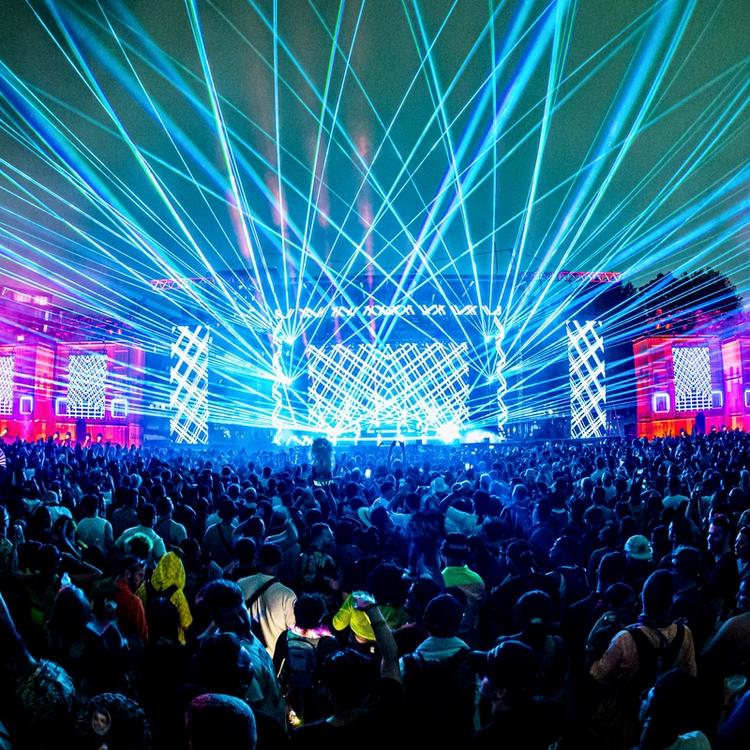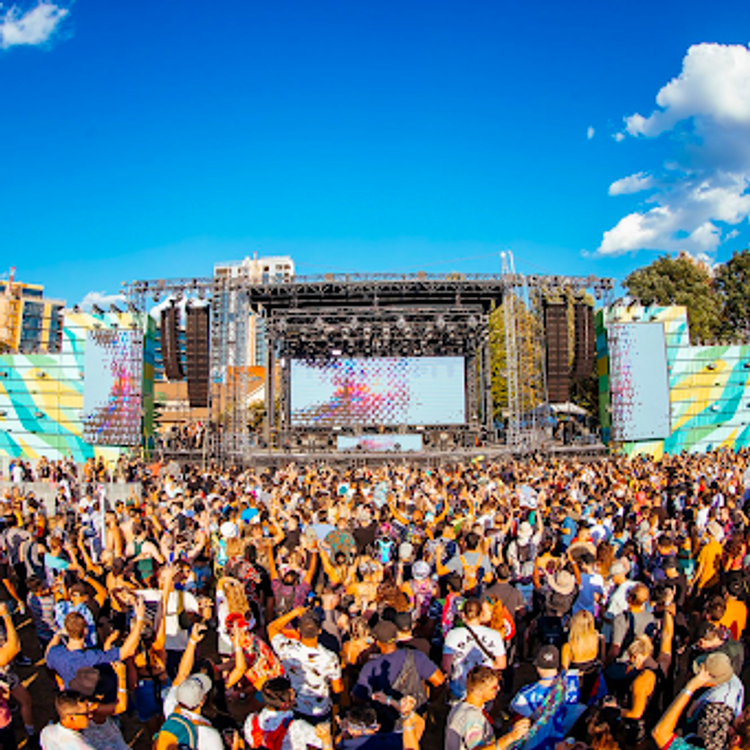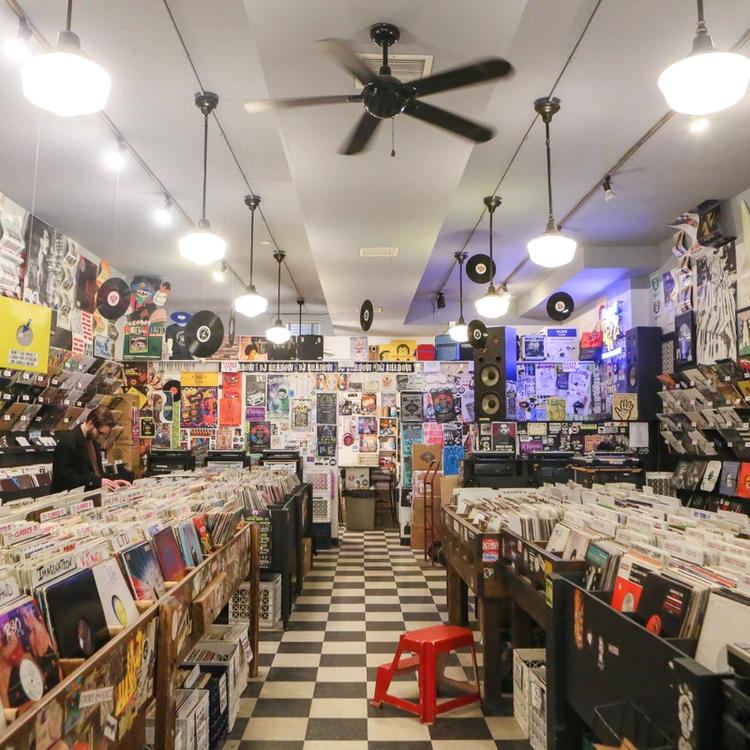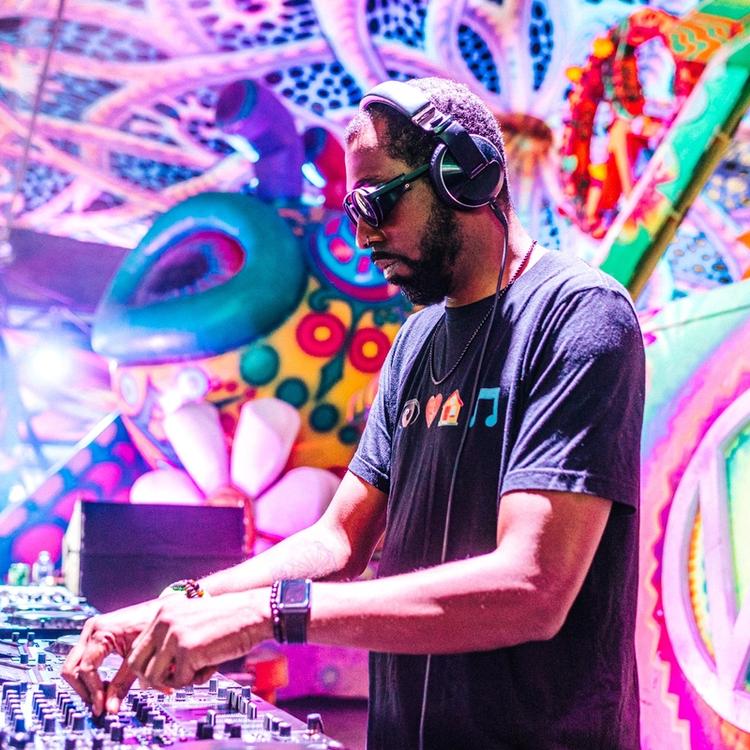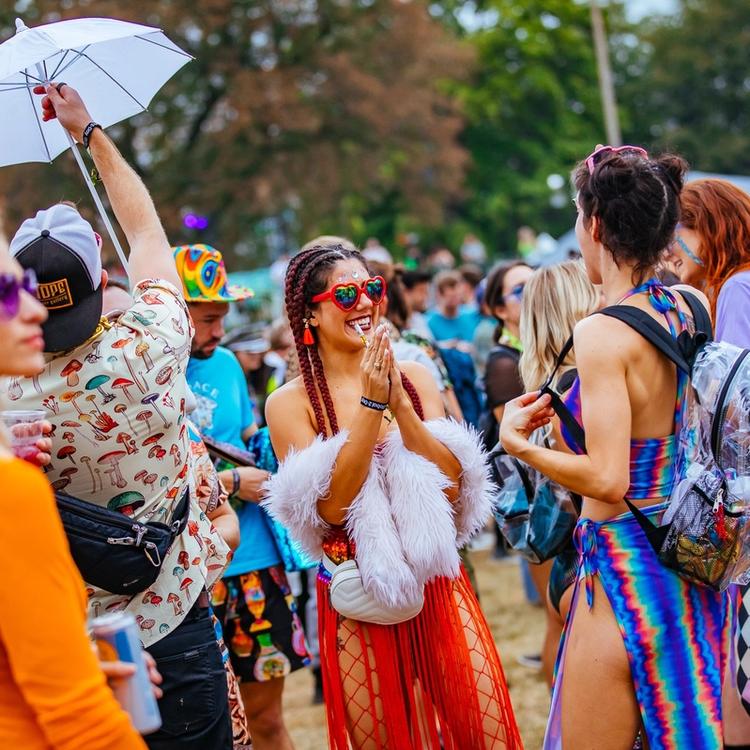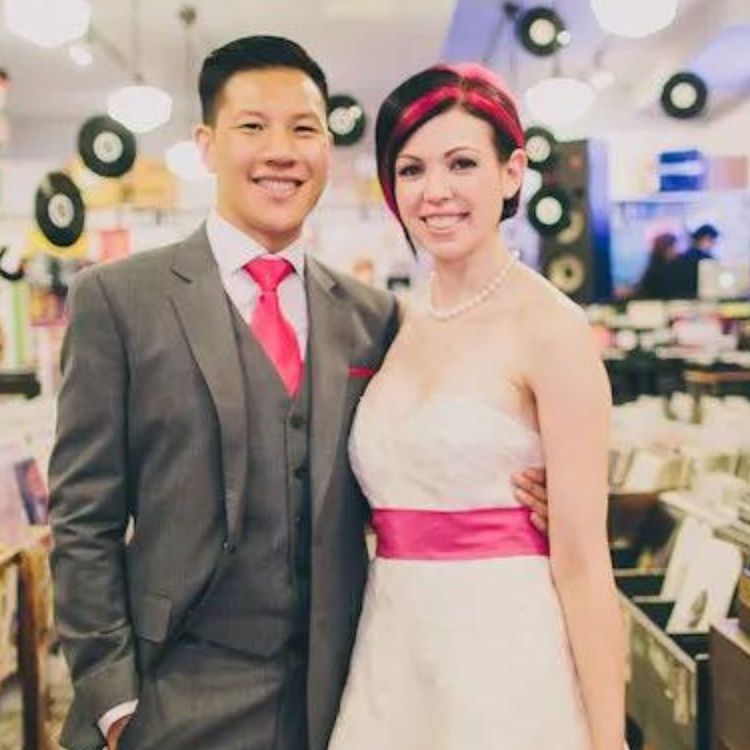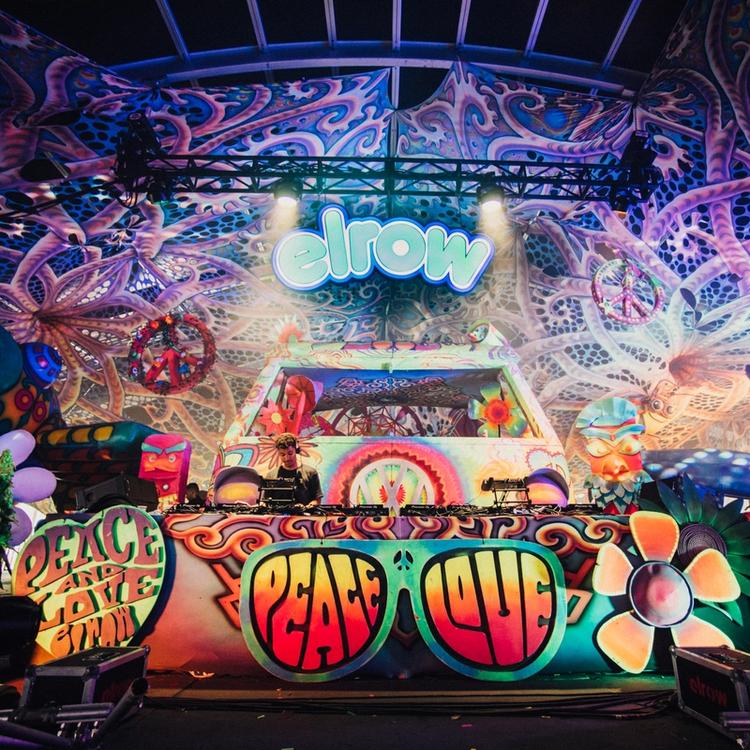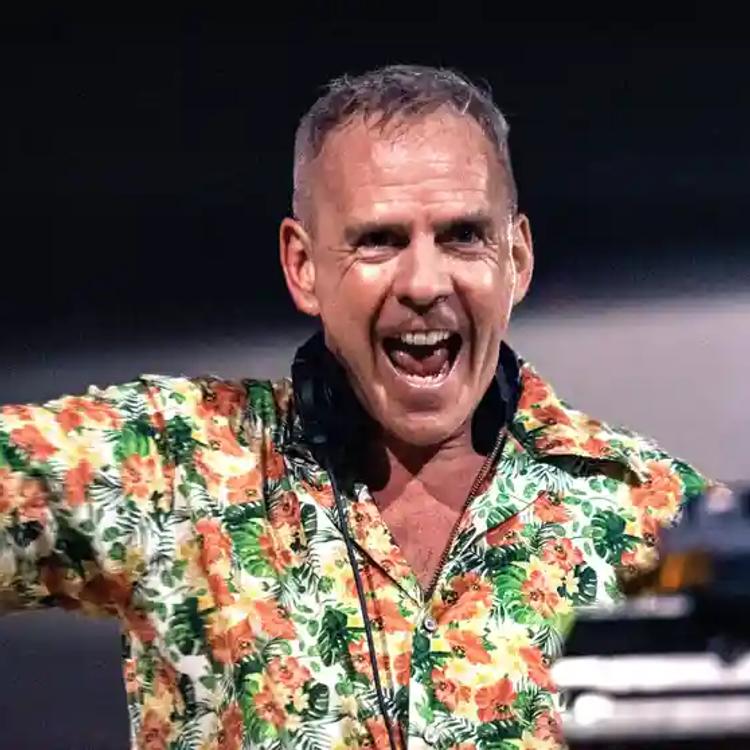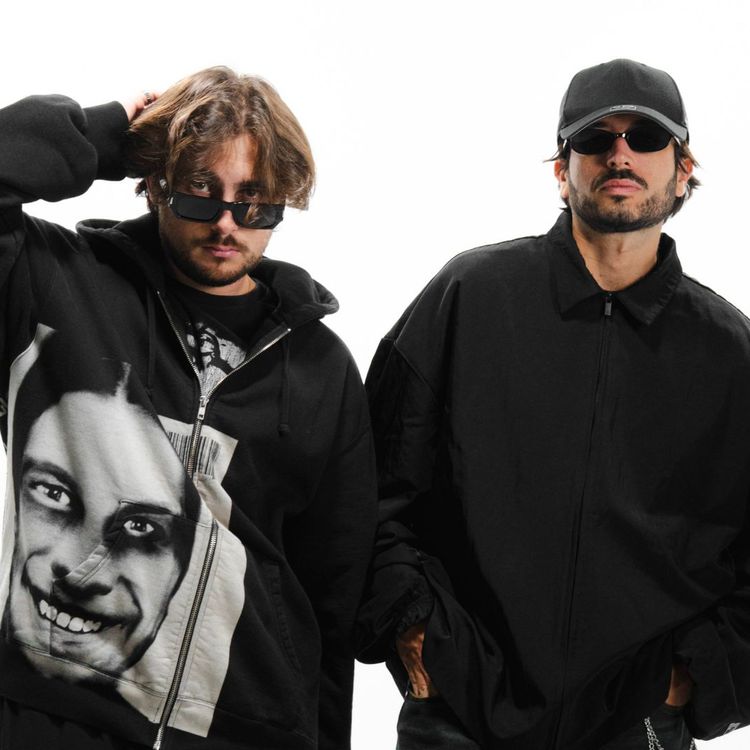The VIP Experience: The Real Price Of Comfort
The laundry list of add-ons and ticket tiers can be dizzying when planning a festival excursion. But it’s this laundry list of options that fund the events we know and love. The sale of multi-leveled ticket tiers and VIP packages has played a large part in the steady increase in music festivals since the start of the festival boom in the early 2000s.
Look at the overwhelming majority of festival ticket pages, and you’ll find several price points connected to an increasingly inclusive ticket/accommodation package.
The US’s largest festival Coachella has a general admission pass that runs about $500 and a VIP pass at ~$1,000. The festival website states, “VIP areas offer specialty food & drink vendors, air-conditioned restrooms, shaded seating areas, and full cash bars.”
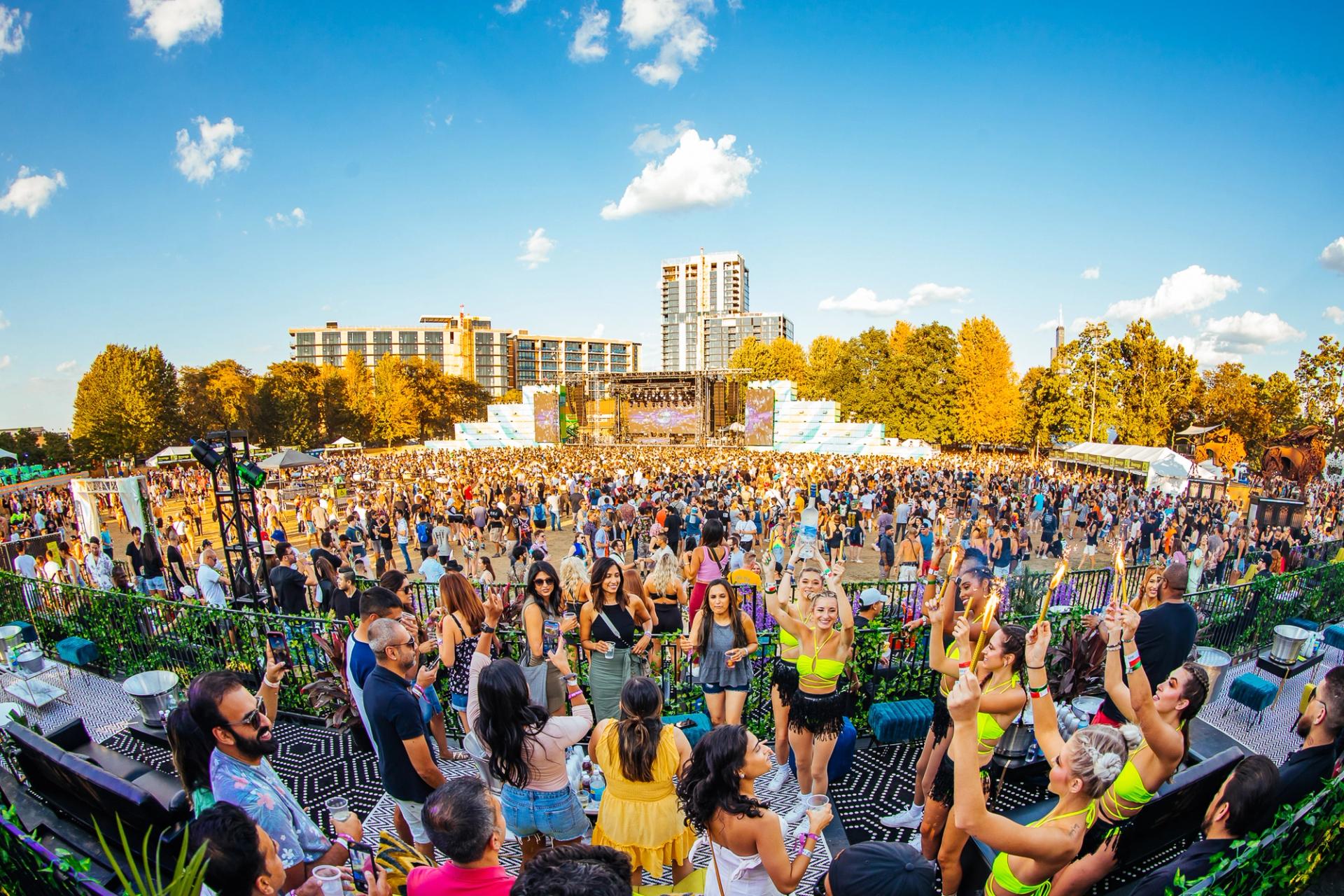
ARC Music Festival VIP Viewing Deck
The disparity between camping options is even more pronounced, with base-level accommodation starting at $102 and the highest lodging tier weighing in at a whopping $9,500. It’s worth noting there is a final lodging tier that simply states, “Contact VMT (Valley Music Travel) for pricing.” But, of course, we all know what it means when there is no listed price.
Electric Daisy Carnival and Ultra Music Festival, two of the world’s leading dance music festivals, offer similar ticket disparities, with General Admission clocking in at ~$400, GA+ at ~$700, and VIP at ~$1,000.
ARC Music Festival Passes Are Available NowExamining most VIP packages will entail a similar line of amenities while sometimes offering exclusive memorabilia. This kind of tiered packaging is not a new or unique concept, and it is certainly not specific to the mainstream. Even niche festivals like Dirtybird Campout, ARC Music Festival, and All Day I Dream offer various event experiences.
Chicago’s premier house and techno event, ARC Music Festival, for example, lets VIP ticket holders pick from two tiers. Both the Global and Icon levels offer express entry, access to exclusive lounges, elevated viewing areas, cash bars with top-shelf liquor, and air-conditioned bathrooms (something anyone can appreciate at a festival). The Icon tier steps up the offering with all-inclusive bar and food options, massage and spa services, personal lockers, and festival merchandise.
Festival-goers would be hard-pressed to find a festival that didn’t offer a VIP option of some sort, be it through event access or accommodation level. And a quick glance at the present-day market metrics will tell you why.
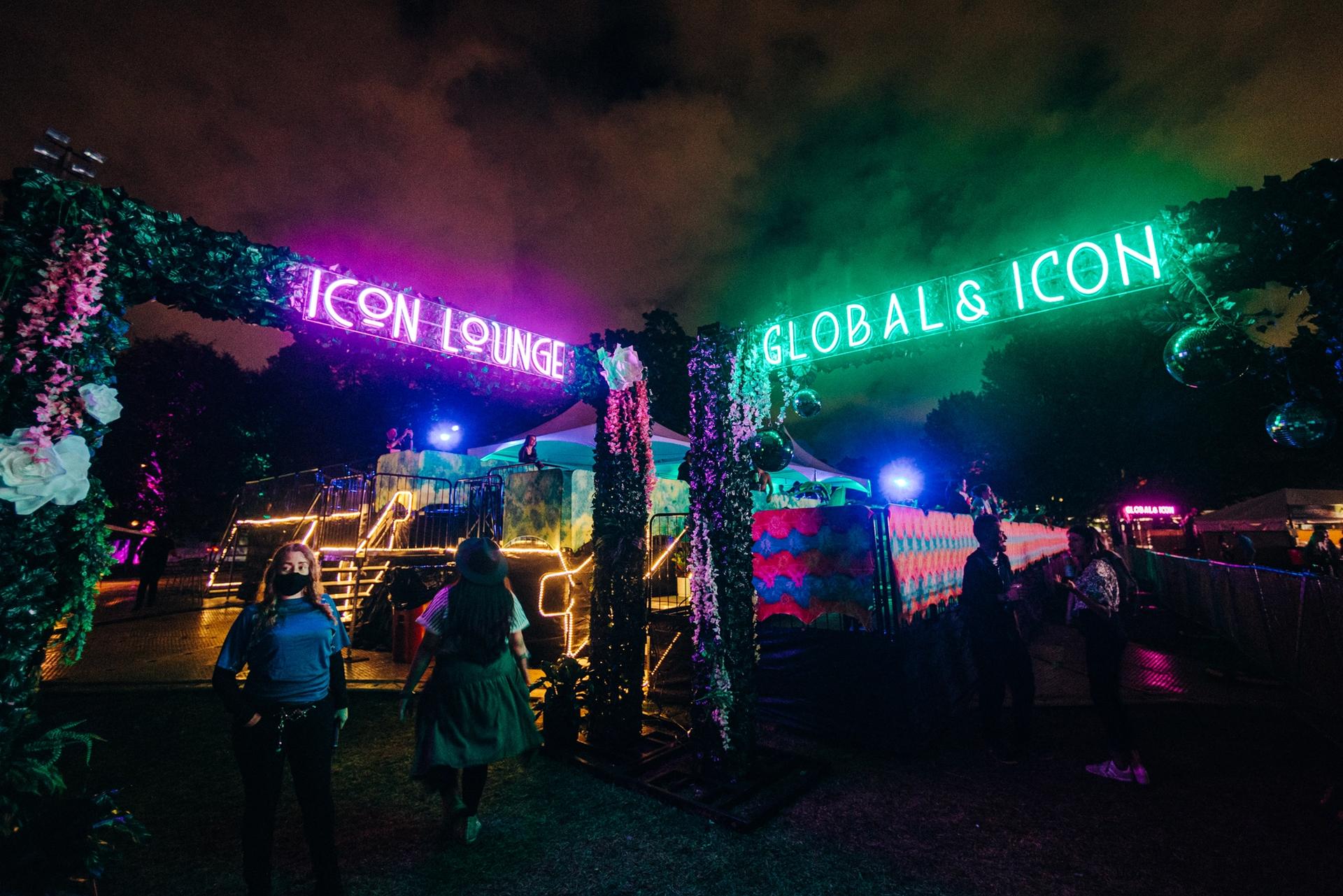
Global & Icon VIP at ARC Music Festival
Kursza
Dr. Chris Anderton, Professor of Cultural Economy at Solent University, noted in his analysis of music festival sponsorship that between 2003 and 2006, 160 new music festivals formed in Europe’s music festival hub, Great Britain. Those festivals comprised 24% of the UK’s average of 670 yearly fests. Of those 160 events, more than 25% had ceased operation by 2007.
A quick search on Music Festival Wizard shows the US will host 400-500 music festivals in 2022 alone. Applying Anderton’s findings to the current market, which continues to be plagued by Covid-caused cancellations, suggests that 10-20% of this year’s new festivals will cease operation in 1-4 years.
This may seem surprising to many considering festivals like Lollapalooza, Burning Man, and Glastonbury have been in place for 30-50 years. But by and large, the festival industry is volatile. Everything from adverse weather to poor marketing can wreak havoc on an industry closely tied to the current financial state of its target market. And they require massive amounts of initial investment. Festivals in secondary and tertiary markets with strikingly slim profit margins are sometimes one ill-timed thunderstorm away from permanent failure.
Considering the annual return of many music festivals is far from a forgone conclusion, it makes sense that event organizers would seek to boost revenue in any way they can. Bolstering profit margins with VIP and tiered offerings goes a long way toward ensuring the return of some of our favorite festivals.
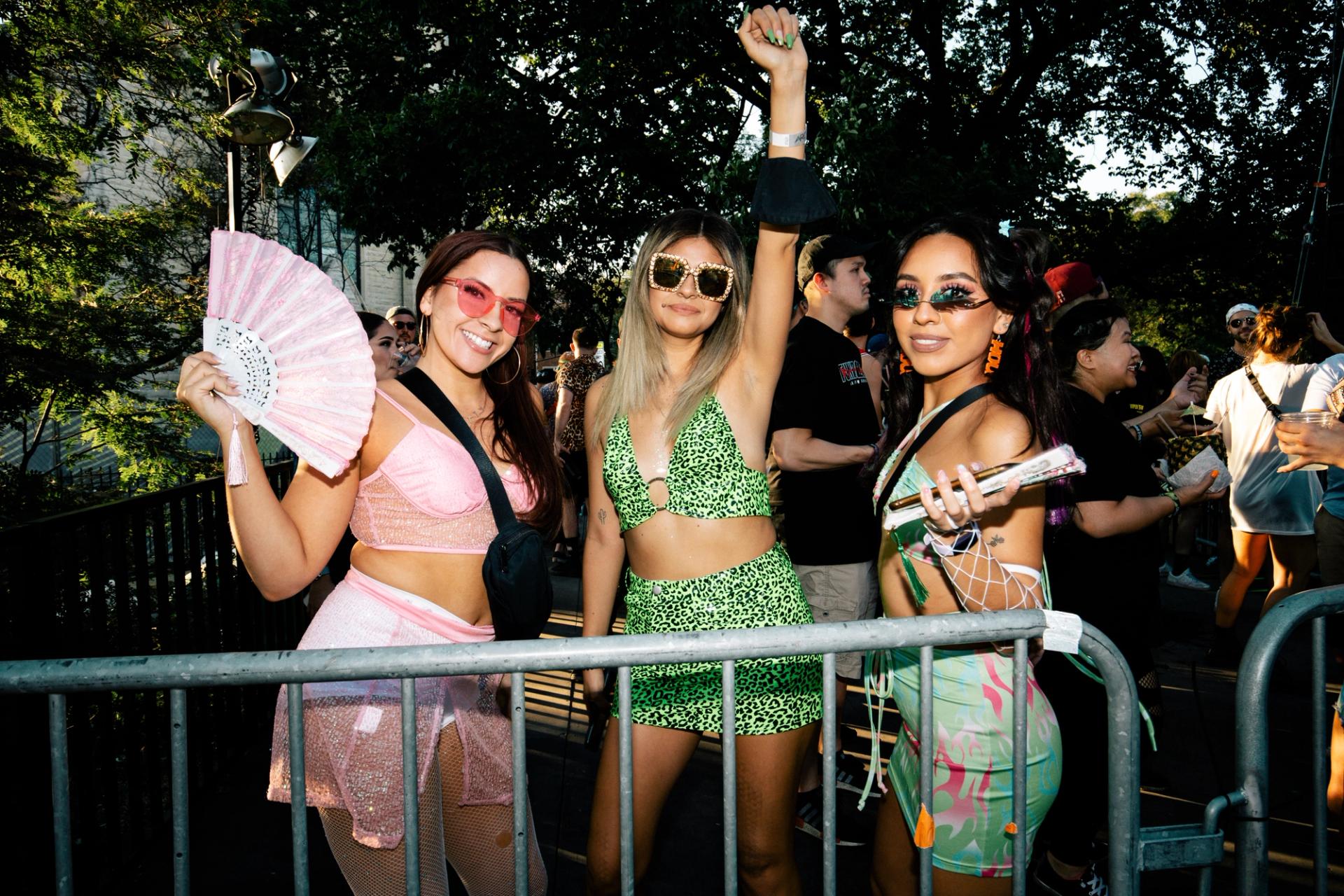
In the VIP at ARC Music Festival
But every action has an equal and opposite reaction, and we have to ask ourselves if the price of these VIP offerings is purely monetary or if we might be sacrificing something more? Could the culture of music festivals be at risk? To answer this, we first must look to the roots of the modern-day music festival.
Today’s music festivals trace their origins to the UK’s open-air jazz festivals of the 1950s and psychedelic pop and rock events like the Monterey Pop Festival and Woodstock Music and Arts Festival of the 1960s. These festivals offered space for expression and participation in emerging countercultural fields of the time, such as mysticism and eastern philosophies, without the interference of societal norms and expectations.
In a time of stark political, social, and cultural polarization, these events turned into momentary safe havens for an increasingly progressive and forward-thinking population.
“Free Festivals” throughout the UK in the 70s and 80s emerged from the belief that commercial event organizers were merely gouging the attendees. This new festival variant soon comfortably outnumbered commercial festivals. They charged no admission or camping fee, featured bands that played for free, and depended on volunteer participation of attendees in every facet ranging from food distribution to ecological awareness for their success.
The characteristics of community, accountability, counterculture, and altruism that defined early festivals laid the groundwork for both free and commercial music festival culture and values for years to come.
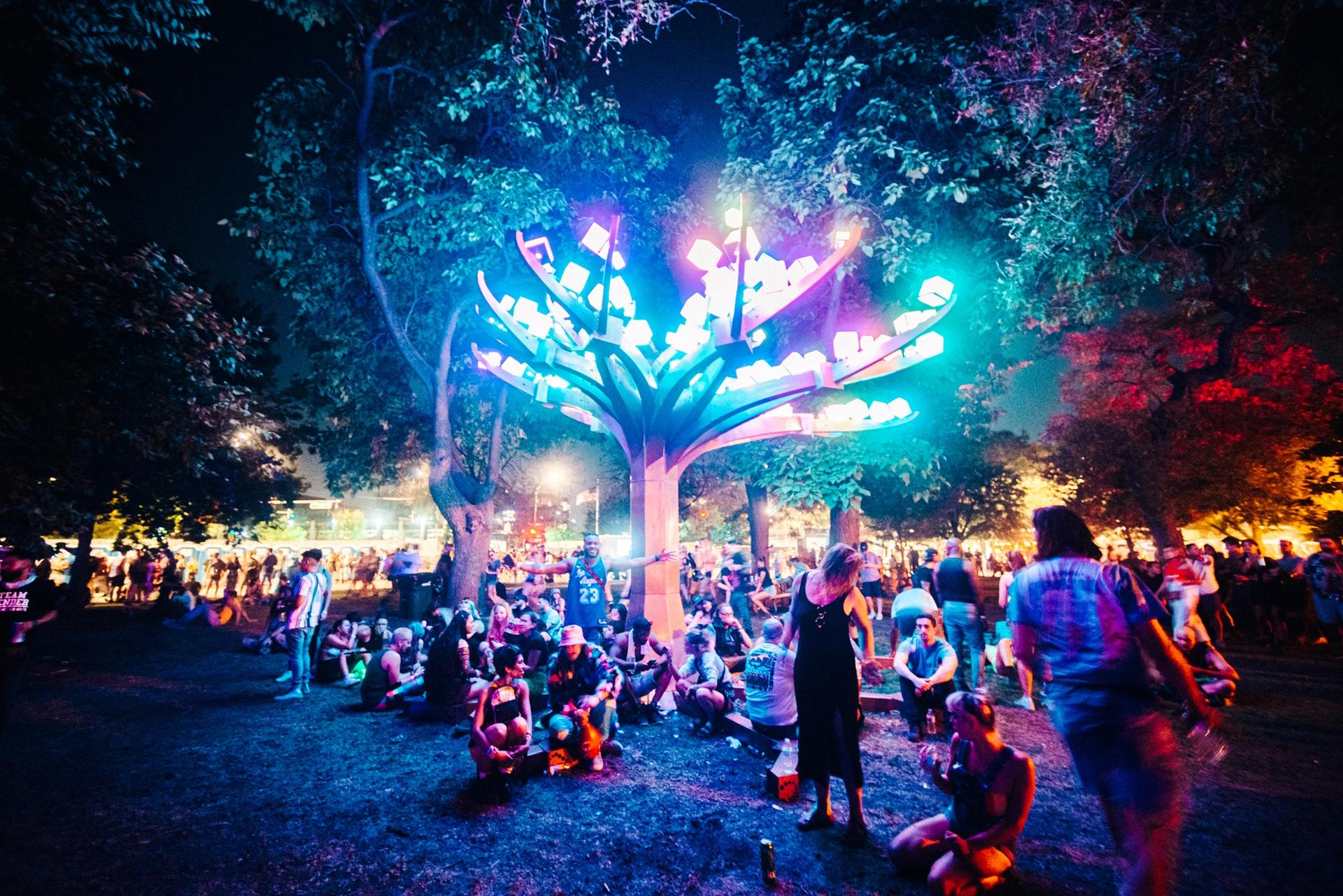
ARC Music Festival 2021
A decade of socio-political clashes with the conservative UK government led to the mid-90s disbandment of the free festival movement and the traveling community that sustained it. The elimination of free festivals cleared the competition for commercial festivals to advance, but the economic after-effects of the actions taken against free festivals forced commercial promoters to use corporate sponsors to mitigate these increased costs.
By the turn of the millennium, promoters recognized the boundless possibilities of corporate investment. Since then, we’ve seen festivals grow non-stop to scales greater than ever thought possible. The live music industry has become a roughly 28 billion dollar market. In a world that sees Millennials and Gen Z assigning significantly more value to experiences over goods, the profit potential behind VIP packages is too great for promoters to ignore.
So how do VIP packages and tiered ticketing interact with the foundations of festival culture? While the emergence of higher offerings can ease the financial risk taken by promoters, have they also hollowed the core of what music festivals are supposed to represent?
The principles of community, accountability, counterculture, and altruism that defined the success of the free festivals stemmed from a shared experience driven by a common appreciation for music and the nonjudgemental space for expression it provided detached from societal norms and hierarchy. By these standards, the figurative and literal lines VIP packages form between festival-goers and their experiences based on their financial ability are antithetical to the culture that birthed the foundations of the festivals we love today.

Getting a haircut in the ARC Music Festival VIP
All too often, we see the exclusive nature of this capitalistic hierarchy bastardize the founding philosophies of communal oneness as clout-chasers and wannabe influencers flaunt their attendance and exclusive experience on social media to alert the world how #blessed they are. In a festival purist’s perfect world, one would think the willingness to spend exorbitant amounts of money to separate yourself from the masses—the community—for the sake of first-world comforts and optimal content creation would simply result in a one-way ticket to the nearest exit. But neither the music festival industry nor the society in which it exists are the same as they were fifty years ago.
Today’s music festivals are big business, and, for better or for worse, an adequate revenue stream is just as much the life-blood as the music for every event. While many events lean into popular cultural trends and corporate interests to make a sizable cash grab, there is an increasing number of festivals trying to bridge the gap between community and commercialism.
Events like DGTL, ARC, Envision, Lightning in a Bottle, and more embody the communal oneness that defined festivals of decades past. Festivals like these, while still very much dependent on commercial revenue streams, cater their events to a more niche market. Their target markets consist almost entirely of more seasoned festival and genre-versed fans, which carry a direct correlation between time in scene and a deeper sense of community. Some of these festivals also offer an impressively wide variety of workshops, community volunteer opportunities, and ecological volunteer opportunities outside of the music that reprise the values of free thought, expression, and learning that were once defining features of music festival culture.
While offering these deeply enriching and unique opportunities and actively advocating for communal accountability, festivals like these also offer VIP packages and tiered accommodations. This begs the question, “Are they hurting their community?”
One week(end) at any of the four previously mentioned festivals would likely inspire a resounding “No,” from anyone in attendance. Niche festivals like these garner a strikingly loyal fan base and take on the role of pseudo-pilgrimage for many due largely to the brief taste of the near-utopian community and countercultural experience stemming from one common thread—the music. While some participants may have more means than others, the purposeful lack of unnecessary corporate involvement allows these kinds of festivals to focus entirely on delivering an experience that carries deep meaning and fulfillment for their audiences. The communal accountability, gratitude, and altruism felt by those in attendance largely mitigates any separation conveyed through differing tiers.
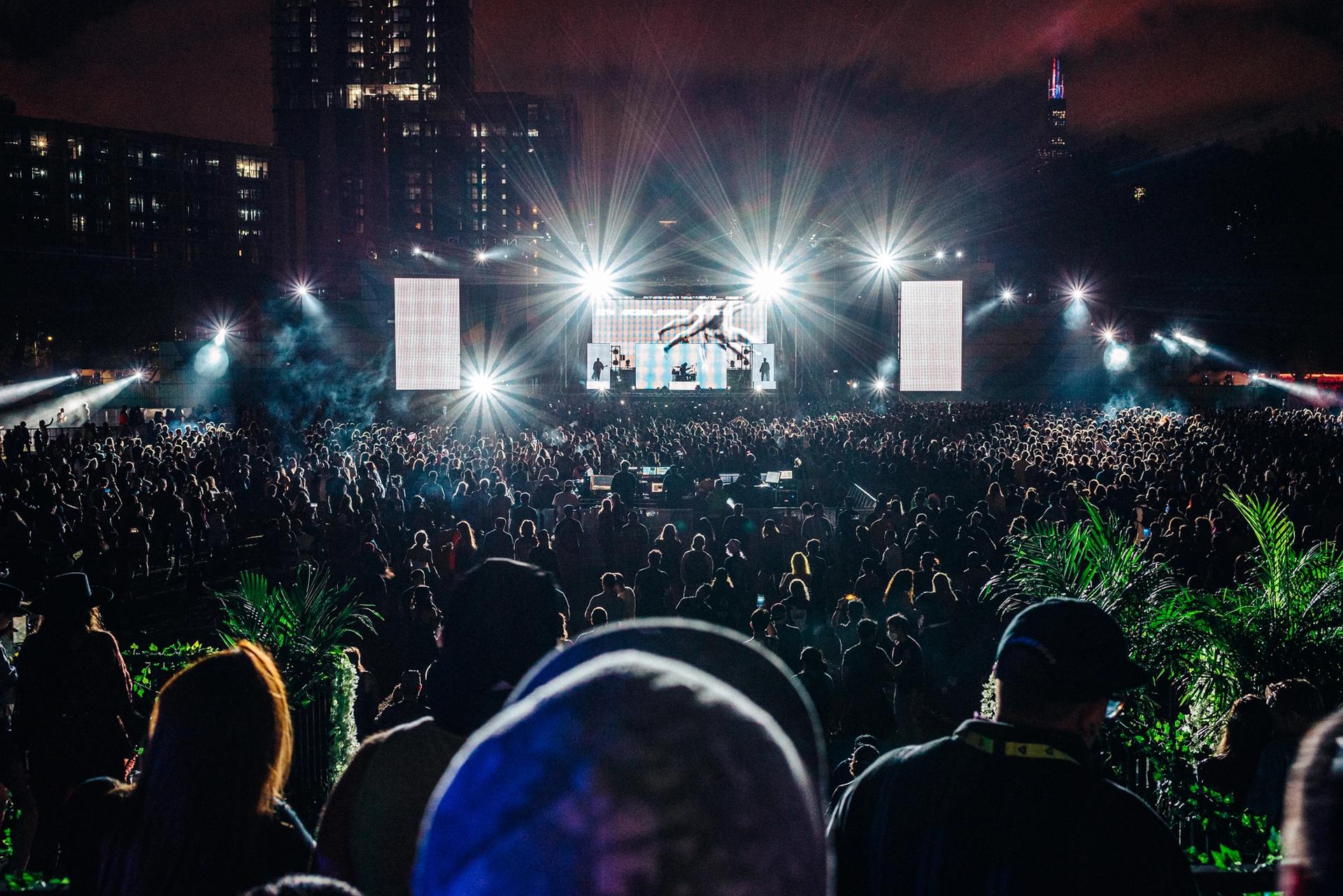
Views from ARC Music Festival VIP viewing deck at night
In a world where commercialism continues to permeate nearly every facet of our lives, and our perceived (and sometimes financial) value is increasingly tied to the likes garnered by our latest post, is it possible for music festivals to find a balance between the financial gain of VIP hierarchy and the post-societal roots of festival culture?
While the hyper-commercialization of live music over the last two decades has undoubtedly birthed a sea of trend-oriented, profit-driven music festivals, we are seeing a rise in secondary festivals embody the founding principles of community, accountability, counterculture, and altruism while making enough money through ticket tiers and add-ons to become annual events.
Perhaps we are witnessing a split in the market similar to the commercial and free festivals decades ago. While it is doubtful we’ll see free festivals reprise any time soon, festival-goers should still strive to live out the mutually uplifting philosophies of festivals past regardless of genre and audience attendance. Promoters, too, can take a page from the New Travelers, organizers of the Free Festivals, and work to build more festivals of substance that not only support their attendees but also minimize their impact on the land and communities in which they take place.
